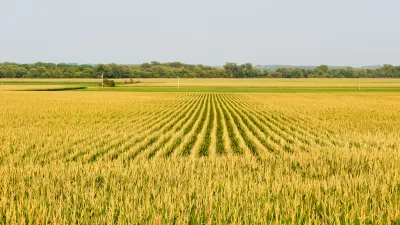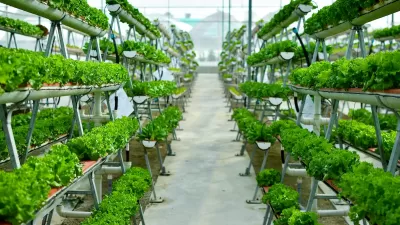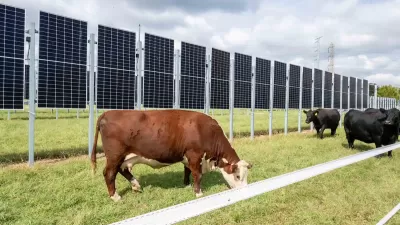At risk with industry consolidation like a proposed merger of Bayer and Monsanto, is the environmental impact of the business, along with the financial impact on farmers.

"One of the biggest stories in agriculture right now is the jaw-dropping consolidation among companies that sell the world’s seeds, pesticides, and fertilizers," reports Brad Plumer.
Currently, there are six companies that dominate the biotech seed and agrochemical industries: Bayer, Monsanto, Dow, DuPont, Syngenta, and BASF. But in recent months, DuPont has proposed merging with Dow, Bayer has struck a deal to buy up Monsanto, and Chinese giant ChemChina is buying Syngenta. If these mergers all go through, the three biggest agribusinesses would sell 59 percent of the world’s patented seeds and 64 percent of all pesticides.
Why does this news from the agriculture business matter to issues of planning and land use? According to Plumer, the lack of competition resulting from all of this consolidation could stifle innovation and raises costs on farmers, "who have already been battered by falling incomes in recent years."
The federal government is sufficiently concerned about the consolidation trend in the agricultural business to schedule a hearing of the Senate Judiciary Committee earlier this week. Plumer devotes most of the article to detailing the case made during the hearing on either side of the issue. Plumer concludes by noting that the Senate is asking regulators from the Justice Department and the Federal Trade Commission to devote extra scrutiny to mergers in the agriculture and seed industry.
FULL STORY: Why the fight over the Bayer-Monsanto deal matters for the future of agriculture

Planetizen Federal Action Tracker
A weekly monitor of how Trump’s orders and actions are impacting planners and planning in America.

Vehicle-related Deaths Drop 29% in Richmond, VA
The seventh year of the city's Vision Zero strategy also cut the number of people killed in alcohol-related crashes by half.

As Trump Phases Out FEMA, Is It Time to Flee the Floodplains?
With less federal funding available for disaster relief efforts, the need to relocate at-risk communities is more urgent than ever.

A New Texas Neighborhood is Powered by Geothermal Energy
The 7,500-home development claims to be Austin’s ‘first zero energy planned community.’

Data: In Rural America, Mobile Homes are Heat Traps
Extreme heat is often viewed as an urban problem, but rural communities face their own unique risks.

NYC: What Mamdani’s Rivals Can Teach Him About Transportation
The mayoral candidate won on a bold, progressive platform. Some of his opponents had even bolder ideas.
Urban Design for Planners 1: Software Tools
This six-course series explores essential urban design concepts using open source software and equips planners with the tools they need to participate fully in the urban design process.
Planning for Universal Design
Learn the tools for implementing Universal Design in planning regulations.
Heyer Gruel & Associates PA
JM Goldson LLC
Custer County Colorado
City of Camden Redevelopment Agency
City of Astoria
Transportation Research & Education Center (TREC) at Portland State University
Camden Redevelopment Agency
City of Claremont
Municipality of Princeton (NJ)





























